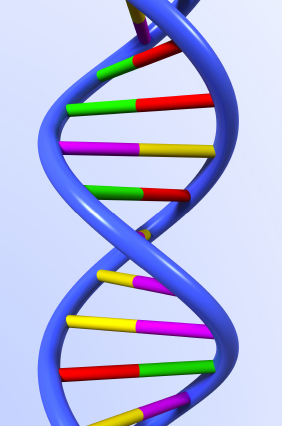by
Brendon Nafziger, DOTmed News Associate Editor | November 03, 2009

Unlocking the mysterious
genetic links to diabetes
Some cases of diabetes could be caused by a genetic defect that damages a protein required to make insulin, according to a study published in October in Cell Metabolism.
Scientists at the University of Chicago discovered that mice genetically engineered to lack a biochemical pathway implicated in other diseases showed diabetes-like symptoms, such as low insulin levels and a reduced blood glucose response.
While the researchers aren't exactly sure what's happening, it appears that mice missing chloride channel 3, or CLC-3, a channel that admits negatively charged chloride ions into cells, are unable to convert proinsulin, the inactive precursor to insulin, into the real thing.



Ad Statistics
Times Displayed: 60894
Times Visited: 1960 Ampronix, a Top Master Distributor for Sony Medical, provides Sales, Service & Exchanges for Sony Surgical Displays, Printers, & More. Rely on Us for Expert Support Tailored to Your Needs. Email info@ampronix.com or Call 949-273-8000 for Premier Pricing.
"In a way we totally don't understand it," Deborah Nelson, Ph.D., one of the senior authors of the paper, and a professor of neurobiology at Chicago, tells DOTmed News.
Nelson and her colleagues believe that somehow the lack of the chloride channel prevents beta cells, the cells in the pancreas that create insulin, from keeping their environment acidic enough for prosinsulin, which gets bundled into granules that move to the cell surface, from making the critical transition into their usable form.
In addition to being near-diabetic, many of the mice were blind and, most intriguing of all, epileptic. In fact, the researchers found many of the mice had suffered severe degeneration to the hippocampus, a part of the brain known to be affected in epilepsy.
"The stunning surprise was the lack of this chloride channel produced hippocampal degeneration," Nelson says.
Although no known human case of type 2 diabetes is linked to the lack of this channel, no one has really looked. "It's possible that some diabetes patients might have the mutation," says Nelson. "You would search for someone who might have retinopathy, diabetes and some sort of epilepsy."
If some defect in the chloride channel leads to diabetes, it is probably quite rare, Nelson says, though the chloride channel is known to play a role in other diseases, including cystic fibrosis, which is Nelson's main area of research.
Hints from epilepsy research also provocatively suggest a chloride channel connection. Almost all anti-epileptic drugs, Nelson says, enhance the production of GABBA, an inhibitory neurotransmitter that shorts the runaway activity involved in epileptic attacks. And GABBA is believed to work through chloride channels, Nelson says.
For her next studies, Nelson hopes to better understand how this pervasive, important channel could be directly involved in the mice diabetes. "One thing we're trying to do, is develop an absolutely causal link between channel expression and intracellular mechanisms that lead to the release of insulin," she says.
Back to HCB News

